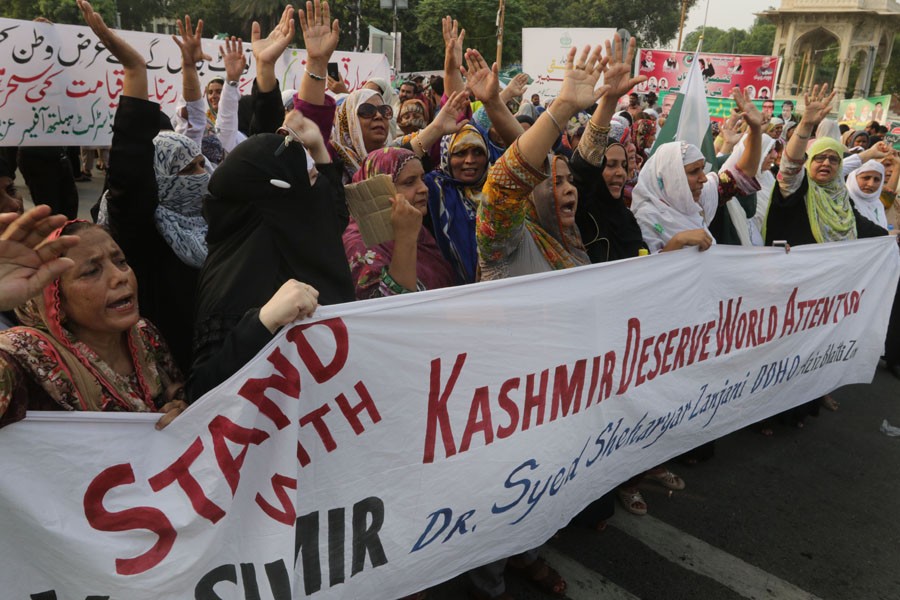
Besides trade cut, Islamabad is exploring all legal, political and diplomatic avenues in response to Indian aggression

The Indian government revoked Article 370 of its constitution that gave special status to Jammu and Kashmir and divided the state into two Union Territories -- Jammu & Kashmir and Ladakh. Pakistan contends that this is in violation of bilateral agreements and international resolutions of the United Nations.
Kashmiris have been fighting a long war against India with the moral support of Pakistan for the past seven decades. Pakistan has now downgraded diplomatic ties and severed trade relations with immediate effect. Islamabad has announced it will review all bilateral agreements with India. The Corps Commanders’ Conference has announced that Pakistan is prepared to go to "any extent" in support of Kashmiris.
What legal options does Pakistan have? Ahmer Bilal Sufi, senior advocate and a member of the committee set up by the prime minister to suggest possible options against the Indian move, says Pakistan can approach the UNSC. He says under the UN charter the UNSC can be moved with regard to "disputes" and "situation" that can threaten international peace and security. But, he adds, for this, Pakistan needs hectic diplomatic efforts to engage members of the UNSC. He says the UNSC is empowered to take notice of such situations.
Sufi says Pakistani representative in the UN has already briefed the UN secretary general on the ongoing developments. "Another diplomatic option is to talk to the leadership of various countries to muster support. The government has already begun the process."
Also read: Another betrayal
So far, Pakistan has engaged more than two dozen countries, including Malaysia, America, United Kingdom, United Arab Emirates, China, Saudi Arabia, Turkey and Iran. It wants the global community to put pressure on India to reverse this step.
Besides cutting trade links and suspending Samjhota Express, Pakistan is considering to take "vigilance steps" and "safeguards" against any possible aggression. "We are, at this moment, exploring political, legal and diplomatic options," Foreign Minister Shah Mahmood Qureshi told the media last week, announcing that Pakistan would move the UNSC on this matter.
"We should not think of a military option unless there is aggression from India," Lt Gen (retd) Amjad Shoaib tells TNS, adding, "We should go for diplomatic efforts. We need very serious diplomatic efforts to counter Indian lobbying and tell the world about violence in Kashmir." He rules out military encounter between the two countries, at the moment.
Shoaib also thinks that for the past few years Pakistan has failed to effectively raise the Kashmir issue.
"We need to take positive practical steps," says Lt Gen (retd) Moeenuddin Haider. "Violence in Kashmir may rise." He says all options have been weighed by the government and armed forces are ready for any misadventure by India. "If such a situation arises, this will not be a war limited to Kashmir and Pakistan-India but will impact the whole world."
The emerging situation may also provoke anti-India non-state actors that might become another challenge for Pakistan. Islamabad is currently trying to get off the grey list of Financial Action Task Force (FATF).
"There are no chances of armed resistance from within Pakistan," says security analyst Muhammad Amir Rana. "However, we cannot rule out serious indigenous resistance from Kashmiri organisations."